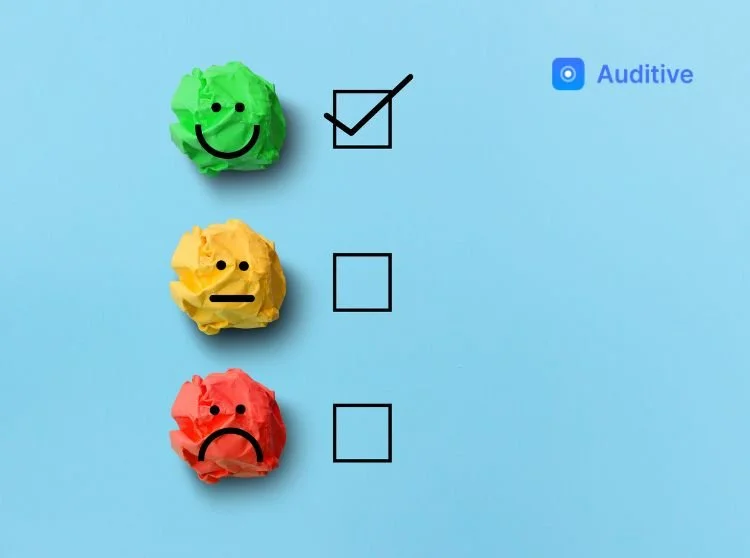Best Tools to Perform Vendor Evaluation
When it comes to choosing the right vendors for your business, using the right vendor evaluation tools can make all the difference. These tools help streamline the assessment process, allowing you to make informed, data-driven decisions. Whether you are looking to improve efficiency, reduce risks, or ensure long-term success, the right tools will give you a competitive edge.
However, with the wide range of tools available, selecting the right solution for your organization can be a challenging task. This blog will walk you through the best vendor evaluation tools available at your disposal so you can start making smarter, more confident choices for your business. But before we dive into these tools, let’s first understand what vendor evaluation is and why it's so essential.
What is Vendor Evaluation?
Vendor evaluation is the process of assessing and analyzing potential or existing vendors to determine their suitability for meeting a business's needs. This involves assessing various factors such as the vendor's reliability, performance, financial stability, compliance with regulations, quality of products or services, and overall capability to deliver on contractual obligations.
Vendor evaluation helps businesses make informed decisions when selecting or continuing relationships with vendors, ensuring they choose the best partners to support their operations and strategic goals. It is a crucial step in managing third-party risks and ensuring the long-term success of the supply chain.
Why Is Conducting Vendor Evaluation Important?
Vendor evaluation is crucial for ensuring businesses select reliable, cost-effective, and high-quality service providers.
Conducting vendor evaluation is important for several reasons:
Risk management: It helps identify potential risks related to a vendor’s financial stability, compliance, and performance, reducing the chances of supply chain disruptions or non-compliance issues. A credible third-party risk management (TPRM) solution like Auditive integrates with risk management systems for seamless exchange of information. This ensures easy access to data and enhances collaboration among internal teams.
Quality assurance: By evaluating vendors, businesses can ensure that the products or services they receive meet the required quality standards, reducing defects and improving overall customer satisfaction.
Cost efficiency: Vendor evaluation enables businesses to assess whether they are getting competitive pricing for the value they receive, helping them negotiate better terms or switch to more cost-effective vendors if needed.
Long-term partnerships: Regular evaluations ensure that vendor relationships remain productive and mutually beneficial. They help identify areas for improvement and build stronger, more aligned collaborations over time.
Performance tracking: Businesses can track vendor performance against agreed-upon metrics through consistent evaluation, ensuring that service levels are maintained and continuous improvements are made.
Vendor evaluation is essential to safeguard business interests, optimize operations, and build long-term, successful vendor relationships. Credible third-party risk management (TPRM) platforms help you do this seamlessly. Learn more—>
5 Best Tools To Perform Vendor Evaluation Successfully
There are several vendor evaluation tools available to help streamline and enhance the vendor evaluation process. Here are some popular ones to perform vendor evaluation successfully:
1.Vendor risk management platforms
Auditive: Advanced technological tools and solutions, like Auditive’s Vendor Risk Management tool, can streamline risk identification, assessment, monitoring, and mitigation, allowing organizations to make informed decisions and respond swiftly to potential threats.
It offers comprehensive vendor risk management tools, helping you assess and continuously monitor third-party vendor’s compliance, security, and overall risk profiles. It also allows you to close deals with transparent due diligence, helping you understand 80% of your risk exposure in seconds. Doing this enables organizations to enhance service quality, reduce risks, and increase innovation.
2. Request for proposal (RFP) tools
RFP360: It helps to create, distribute, and evaluate requests for proposals (RFPs). It streamlines the entire process, from drafting RFPs to analyzing vendor responses, ensuring a standardized approach for comparing vendors.
3. Survey and assessment tools
SurveyMonkey and Google Forms: These tools allow you to design customized surveys or questionnaires for vendors. You can create assessments based on your specific evaluation criteria and distribute them to gather feedback and evaluate vendor responses.
4. Contract management software
DocuSign and ContractWorks: These tools help manage vendor contracts, track compliance, and store important vendor-related documents. They enable easy access to contract terms, allowing you to monitor and review agreements after the vendor evaluation process.
5. Scorecard and rating tools
Excel (with templates) and Smartsheet: Though more manual, these tools allow you to create vendor evaluation scorecards with weighted criteria. Vendors are rated on various factors, and scores are compiled to help make a final decision.
These vendor evaluation tools allow organizations to streamline the vendor evaluation process, reduce manual effort, and ensure that decisions are data-driven and based on well-defined criteria.
Selecting The Best Vendor Evaluation Tool, Made Easy
Utilizing the right vendor evaluation tools is key to ensuring your business partners meet your expectations and drive success. With the help of effective tools, you can streamline the evaluation process, assess risks, and make data-driven decisions.
Noteworthy TPRM platforms, like Auditive, offer comprehensive Vendor Risk Management features designed to simplify vendor assessments and enhance decision-making. Whether you're a small business or a large enterprise, adopting the right vendor evaluation tools can significantly improve your vendor management strategy.
Don’t wait; start optimizing your vendor evaluations today with Auditive. Schedule a demo today to build stronger, more reliable vendor partnerships!



